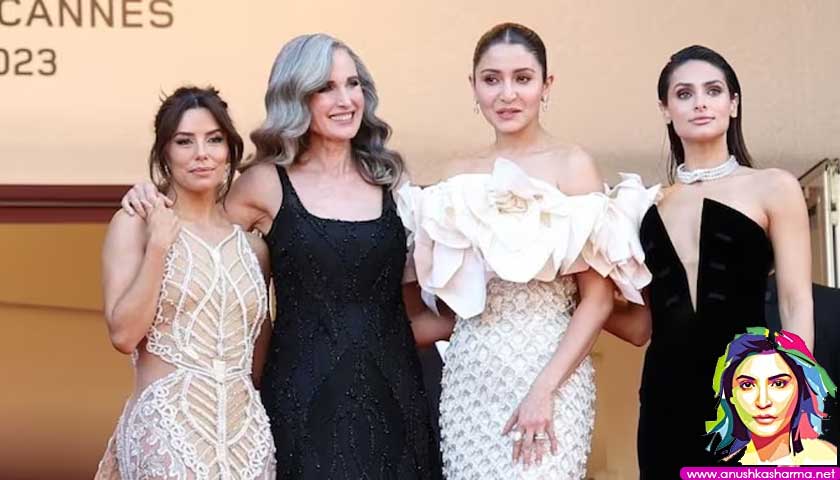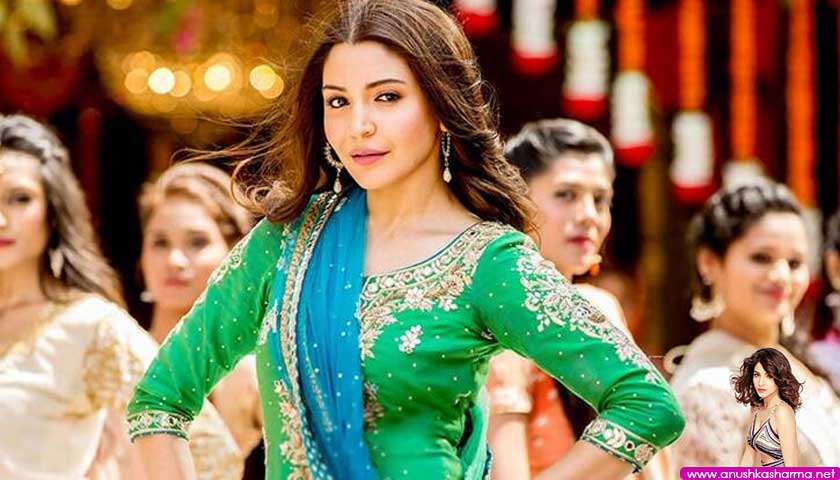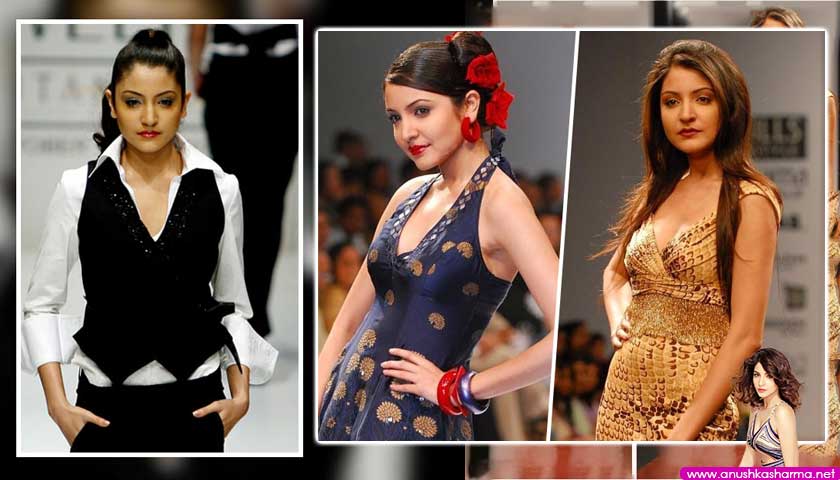Bollywood Journal: Anushka Sharma Tells All
It’s hard to believe that Anushka Sharma has only been acting for four years. From a strong debut in “Rab Ne Bana Di Jodi” to appearing in Yash Chopra’s last movie “Jab Tak Hain Jaan,” Ms. Sharma has had quite a ride, also appearing in “Lady Vs. Ricky Bahl,” “Badmaash Company,” “Patiala House” and “Band Baaja Baaraat.”
The 24-year-old kicked off 2013 with Vishal Bhardwaj’s “Matru Ki Bijlee Ka Mandola” in a solid performance that has been praised by critics. She spoke with The Wall Street Journal’s India Real Time about her rapid ascent in the movie business, the ingredients of a good film, her latest performance and Imran Khan’s particular sense of humor. Edited excerpts:
The Wall Street Journal: You have made great strides in your career, and in only four years. How has the experience been so far?
Anushka Sharma: I can definitely tell you it’s been four very long years, but time well spent. I am very happy with the way my career has panned out thus far. 2012 was very special because I had the opportunity to work with the great Yash Chopra for what was his very last film, ‘Jab Tak Hain Jaan.’ That will always be a special project for me and will always hold a very special place in my heart.
I have made the conscious decision early in my career to be very particular with roles and films. I want to work with the best filmmakers in our industry and whose works I can fully understand. The decision to do that has served be well so far, and I plan to continue that in 2013.
WSJ: Being choosy when deciding on a project seems to be a trend these days, but how is that process unique to you? What criteria do you use to choose the right project?
Ms. Sharma: First and foremost, I look at the person making the movie because knowing about the director, their intentions and vision is crucial. At the end of the day, despite what I do with my performance, it’s the director’s vision that the audience will see and it will be the director that will extract a performance out of me that will help elevate his or her vision. I’m a director’s actor, I take my cues from them, I shape my performance based on their direction and guidance.
WSJ: In a career of only four years, you have managed to shoot right to the top, becoming one of the most sought after heroines in Bollywood. Did you have your sights set on being among the best in the industry?
Ms. Sharma: When I was 17-years-old, I didn’t know what I wanted to do, but I wanted to achieve a lot and do it at a young age. I don’t come from a film background and I was not from a film family, so I wasn’t aware of any particular strategy on how to manage my career.
I also never imagined myself as an actor, it just never entered my consciousness. However, something special happened when I met Aditya Chopra for ‘Rab Ne Bana Di Jodi.’ Mr. Chopra put faith in me and made me believe that acting was something that I could do, and do well.
WSJ: Tell us a little bit about ‘Band Baaja Baarat.’ It was a turning point in your career – suddenly everyone knew the talent you possessed. How did that feel?
Ms. Sharma: ‘Band Baaja Baarat’ was a huge turning point. I knew that it was a good film, but I did not expect that level of success for a film that had a first time director and a lead actor that no one knew previously, which I think worked in my favor. It was the first time that people saw who Anushka Sharma was and what she was capable of doing. I didn’t have to piggyback on someone else’s success, and I think that helped a lot.
WSJ: Considering what you’ve said about being choosy and the films you’ve done so far, MKBKM must have been a very special film. What were your instincts when you were initially offered the film? What did you feel when reading the script?
Ms. Sharma: It was narrated to me. Vishal is a fantastic director and I always wanted to work with him. He’s one of the best in our country and demands a certain kind of respect. He’s also worked with very good actors. I was very excited by this – I knew that working with him would make me a give a performance I would be proud of. I also knew that Vishal would make me deliver a performance that I didn’t consider myself capable of before. I hope that people feel the same way when they see this film.
I laughed so hard listening to the narration. The film has such amazing humor and nobody could have done it better than him.
WSJ: Tell us about your character Bijlee in MKBKM.
Ms. Sharma: It was exciting and refreshing to play a character with so much life. Bijlee is very strong-headed, outspoken and energetic. She is also a rich and spoilt brat. Bijlee runs wild in the village, which is basically owned by her father, played by Pankaj Kapur (Harry Mandola) and she’s world-traveled.
WSJ: What was it like working with a younger actor like Imran Khan?
Ms. Sharma: I had such a great time working with Imran. He’s a nice guy, he’s a gentleman and I always heard that he was easy to work with. The only negative thing that I heard about him was that he had a sense of humor that not everyone understood. So I was a bit anxious going into filming, but it turns out that we have the same sense of humor, and that no one really gets us.
Imran is the only actor that can understand my sense of humor and I find him so down to earth, expressive and hilarious. He’s well read and very intelligent.
WSJ: Now that you’re fully thrust into the entertainment industry, where do you see yourself going?
Ms. Sharma: I’m not really sure if I have the answer to this. My approach is simple, well at least to me: If you’re a good actor and you do good work, you will connect with the audiences and achieve success. This is how I approach my career and all the opportunities that come my way. It’s about being honest in every decision I make, it’s all I know how to do, and it keeps me grounded. This is what I know I will do for sure. Where it takes me we will see.
January 17, 2013 – wsj.com By Daniel Ashwin Pillai




